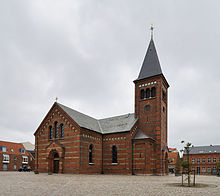
Branden Kartchner
In the mid 900s, King Harald Bluetooth united the kingdom of Denmark and fomented the spread of Christianity across the country. In the subsequent years, the Danish Kingdom conquered many northern European countries. Civil wars followed these decades of prosperity and Danish power debilitated. In 1536, during the years of the reformation, King Christian III established Lutheranism as the official religion of Denmark.
Contemporarily, the official church of Denmark is the Evangelical Lutheran Church and 80% of Danes are members of it. However, less than 10% attend services at least once a month. By law, the monarch is also required to belong to the church. The church receives public funding through a church tax, but only members are required to pay the tax. The Danish parliament actually has control of the church, but it does not generally interfere with its sovereignty. However, in 2012, the parliament voted to legalize same-sex marriage and required the church to perform the marriages. Although priests can recuse themselves from performing the marriages for theological reasons, the presiding bishop must find a replacement. Despite the state sponsoring an official church, citizens of Denmark have freedom of religion and can worship how they desire.
Other religious groups in Denmark include Protestant denominations, Jews, Muslims, Hindus, Jehovah’s Witnesses, The Church of Jesus Christ of Latter-day Saints, and Roman Catholics.
Sources: World Book 2008; Religion and the State: An International Analysis of Roles and Relationships; U.S. Department of State Religious Freedom Report 2012